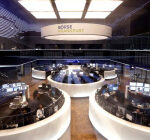(Reuters) -Asia’s factory powerhouses ended 2024 on a soft note as expectations for the New Year soured amid growing trade risks from a second Donald Trump presidency and China’s fragile economic recovery.
A series of manufacturing purchasing managers’ indexes for December from across the region published on Thursday showed factory activity slowing in China and South Korea although there were some signs of a pickup in Taiwan and Southeast Asia.
U.S. President-elect Trump has pledged to impose big tariffs on imports from three major trading partners – Mexico, Canada and China – which are expected to in turn affect other large exporting nations and broader global business activity.
The Caixin/S&P Global manufacturing PMI for China nudged down to 50.5 in December from 51.5 the previous month, undershooting analysts’ forecasts, indicating activity grew only modestly.
That echoed an official survey released earlier this week, which showed factory activity barely growing.
Gabriel Ng, assistant economist at Capital Economics, said Beijing’s increased policy support in late 2024 provided a near-term boost to growth, which is likely to be seen in other fourth quarter indicators.
“And this improvement should carry over into early 2025,” Ng said. “But the boost probably won’t last more than a few quarters, with Trump likely to follow through on his tariff threat before long and persistent structural imbalances still weighing on the economy.”
Elsewhere in Asia, South Ko





